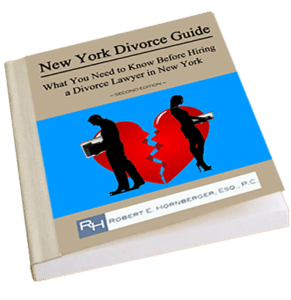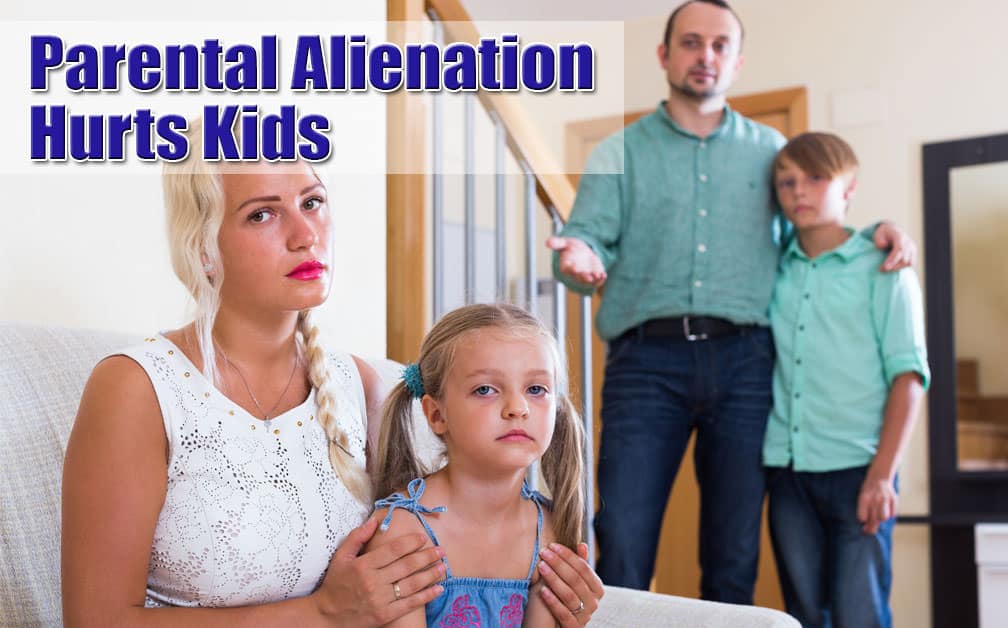Unfortunately, many of my Long Island Divorce and Family Court clients approach me regarding the important issue of Parental Alienation. These clients often feel that the other parent is dragging their children into the middle of the divorce unnecessarily and with singularly bad intentions. Accordingly, I think it is very important to lay out some basic information regarding the topic of parental alienation.
What is Parental Alienation on Long Island?
Parental alienation is the process by which one (or, sadly, sometimes both) parent deliberately attempts to drive a wedge between their child and the other parent. Such a process can poison a child against the other parent and can severely affect the child’s relationship with the other parent. Parental Alienation can range from such extreme actions as cutting off all communication between the child and parent to negative comments about a parent to the child. Such behavior can have long-lasting and damaging effects on the child. It is important to note, however, that in order to take legal action, these allegations must be proven to the court by a preponderance of the evidence.
The Effect – Parental Alienation Syndrome
Parental Alienation Syndrome (PAS) refers to a disturbance in which children are preoccupied with viewing one parent as all good and the other parent as all bad. Some typical behaviors of a child with PAS are:
- The child has an obsession with hatred of one parent;
- The child provides irrational and perhaps outlandish justifications for not wanting to be near the alienated parent;
- The child has a lack of ambivalence in all human relationships (meaning that the child sees all relationships in black and white, there are no mixed feelings);
- The child may accept as completely true all allegations of the alienating parent against the alienated parent;
- The child shows total disregard for the feelings of the alienated parent;
- The child may reject the entire network of family on the side of the alienated parent; and
- The child may “borrow” words or phrases from the alienating parent that are not commonly used by the child, or by children of a similar age.
The Effect on Custody and Visitation
In cases involving Child Custody and Visitation, a court on Long Island may award legal fees, in which one side pays for the attorney fees of the other side. Additionally, the court may find that, due to the risks associated with parental alienation, the best interests of the child are not served by the child being in the company of the alienating parent.
- If the alienating parent is the non-custodial parent, the court may reduce the time that parent has with his or her child.
- If the parent is the custodial parent and the allegations of parental alienation are found to be true and severe, the court may even modify custody so that the alienated parent becomes the custodial parent.
- If the alienated parent’s parenting time was affected due to the actions of the alienating parent, the court may award extended, or make up, parenting time.
- Finally, the court may direct the children, and likely the parents, into therapy, either individually or as a family.
Concerned About Parental Alienation on Long Island? Contact Us
See this page to learn everything you need to know about Child Custody and Visitation on Long Island.
If you believe that you may be alienated by your child’s other parent, or, if you have further questions regarding Parental Alienation, please contact our Long Island Divorce and Family Law Firm at 631-923-1910 to schedule your free consultation with one of our experienced Divorce and Family Law Attorneys.

Download Your Free New York Divorce Guide
Our 41-page “Guide to New York Divorce: What You Need to Know Before Hiring a Divorce Lawyer in New York” written by an experienced family law lawyer, Long Island’s Robert E. Hornberger, Esq., provides you with real information on the divorce process and the laws it rests upon in the state of New York. This book will help give you a solid foundation upon which you can begin the process of making your family’s, life better.















